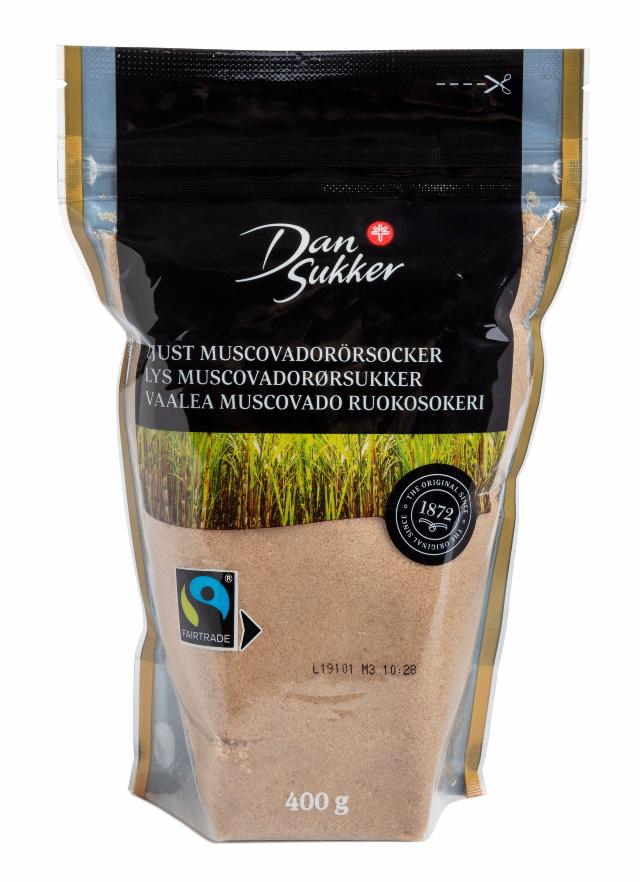Light Muscovado Sugar
Originally Muscovado Sugar comes from Mauritius and is extracted from sugar cane. The sugar is processed as little as possible to retain the aroma and colour.
Muscovado Sugar is available in light and dark varieties. The taste of Light Muscovado Sugar is similar to caramel, while Dark Muscovado Sugar has a hint of liquorice.
Dark Muscovado Sugar goes well in sauces, marinades, chutney, chocolate cakes, chocolate drinks and ice cream
Light Muscovado Sugar can be used to advantage as a condiment for cooking. It is good for fish and root vegetables. It enhances the taste of bread, cakes, biscuits, desserts, marinades, sauces and preserves.
Dansukker Muscovado Sugar is Fairtrade-labelled.
Measures and Weights: Light and Dark Muscovado Sugar
100 ml = approx. 95 g
1 tbsp = approx. 15 g
1 tsp = approx. 5 g
Tips
- Muscovado Sugar is a moist sugar that has a tendency to go lumpy, but part of its charm is that it is not free-flowing. The sugar easily becomes hard if it comes into contact with air. In order to soften it again you can place a piece of apple or potato or a damp cloth in the sugar. Always close the bag tightly and store in a cool place, if necessary in the fridge.
- Muscovado Sugar gives bread a fuller taste.
- Use Muscovado Sugar for preserving and give your recipes a fresh exciting taste!
- Dark Muscovado Sugar gives interesting taste nuances, especially together with chocolate. Try replacing your usual sugar with Dark Muscovado Sugar in baked products and desserts containing chocolate, e.g. cookies, brownies and truffles.
- Freshen up traditional dishes with Muscovado Sugar. For example, try Dark Muscovado Sugar in stuffed cabbage leaves or in the brown sauce for rissoles. There are endless possibilities!
- Muscovado Sugar is perfect for hot drinks, especially coffee. Make your Irish coffee with Dark Muscovado Sugar or give hot chocolate a more grown-up taste by replacing some of your usual sugar with Muscovado Sugar.
Nutritional values per 100 g
| Energy | 1700 kJ/400 kcal |
| Fat | < 0,5 g |
| - of which saturates | < 0,5 g |
| Carbohydrates | 98 g |
| - of which sugars | 98 g |
| Protein | 1 g |
| Salt | 0 g |

Time for citrus
Is there anything better than to start the morning with homemade marmalade on your toast. Let the season's citrus fruits inspire you. If you use our Jam Sugar, you can make your own marmalade in minutes.
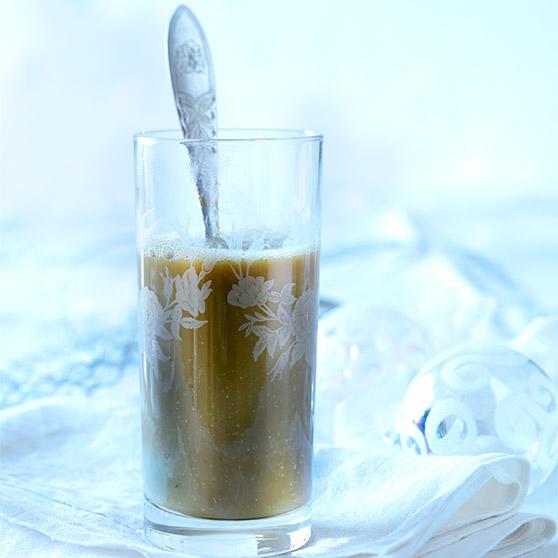
Warming drinks for cold weather
Here are some exciting recipes for tea, coffee and hot chocolate. They are ideal for carrying outside in a thermos or enjoying at home in the morning, afternoon or evening.
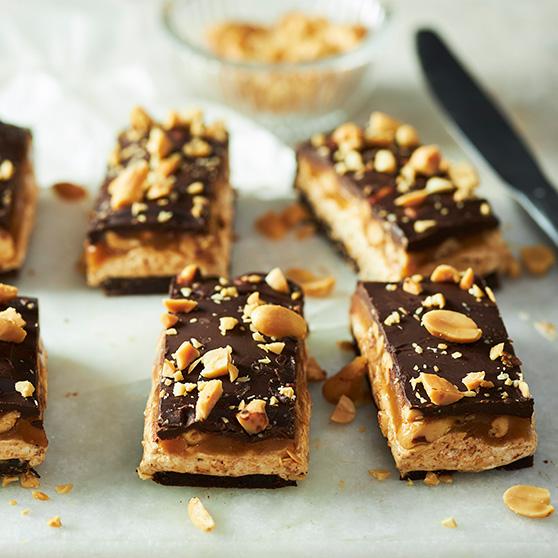
Friday chill out
Friday is perhaps the very best day of the week, and a Friday chill out is the best way to celebrate the end of the working week. Re-charge your batteries ready for the weekend by relaxing on the sofa with the television, family, friends and something that little bit special to eat. We have the recipes for your chill out evening!
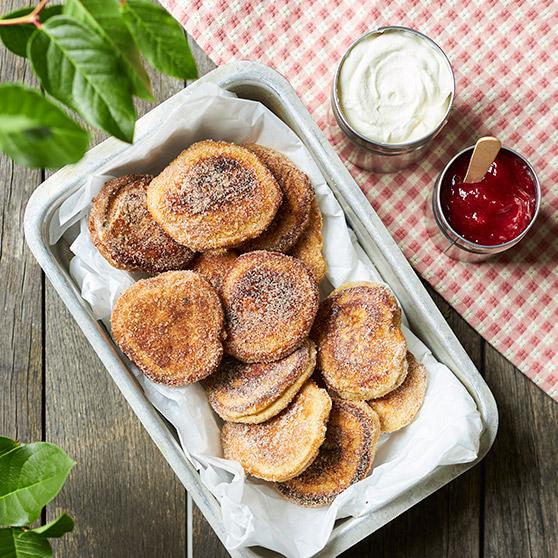
Pancakes
Children love pancakes. And so do adults. Pancakes make the perfect snack, picnic food, brunch or dessert – and they are so easy to vary with a wide variety of accompaniments. Why not try drizzling with a little syrup.

Baking with oranges and lemons
Orange and lemon are wintry flavours and make a great choice for baking. Refreshing and sour, citrus fruit also goes well with other flavours such as chocolate and caramel. Let our delicious recipes inspire you.
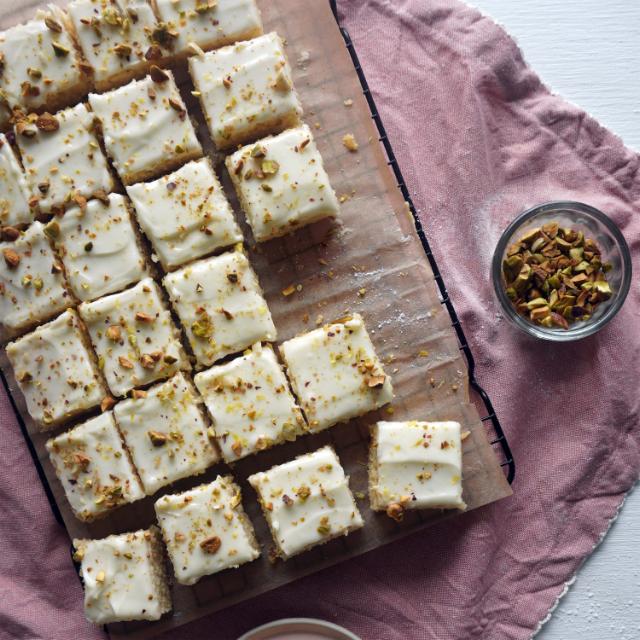
Baking in a roasting pan
Baking in a roasting pan is simple and practical – and above all, it produces large quantities. Ideal if you're having a party or taking a cake to work.
